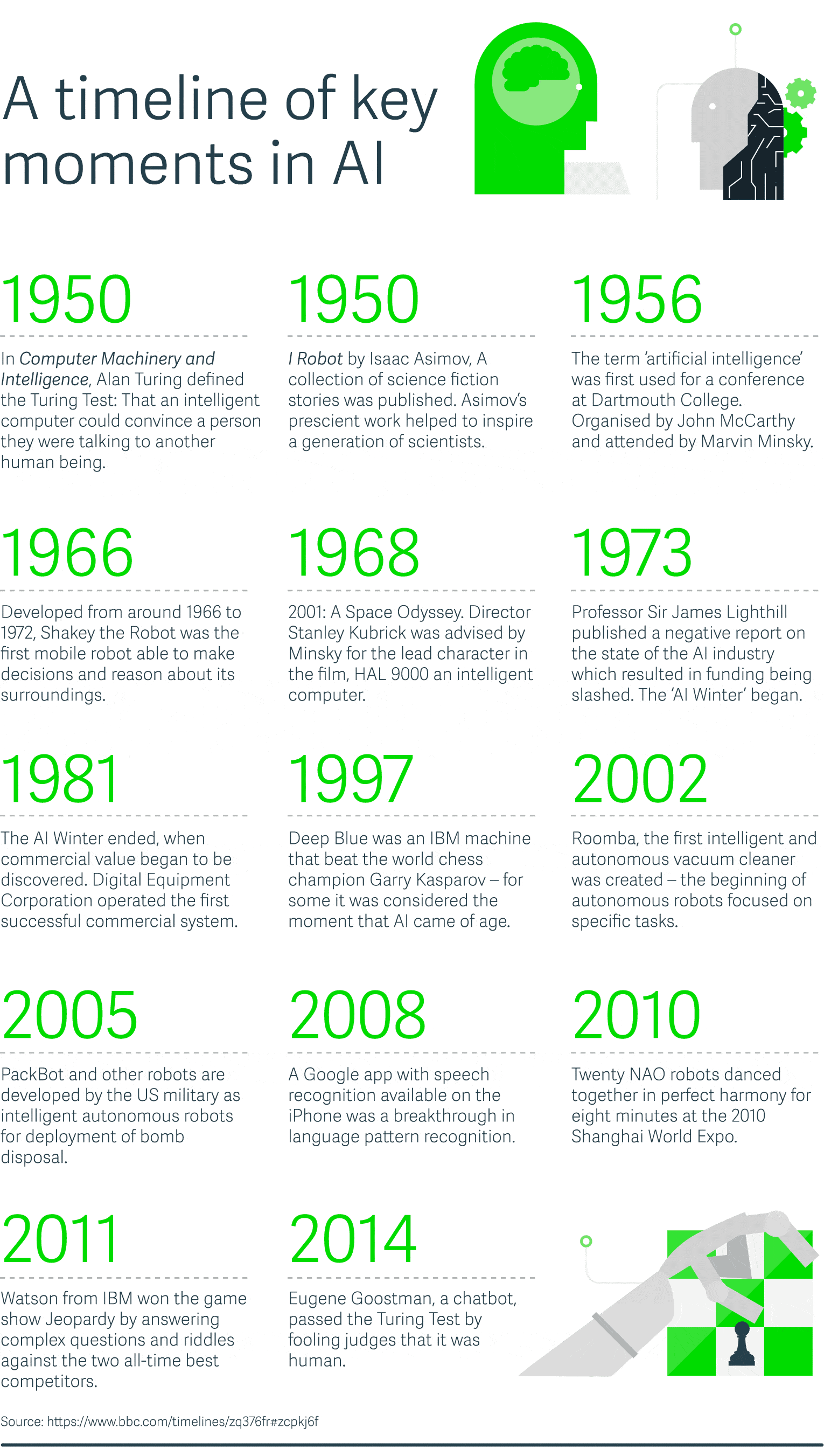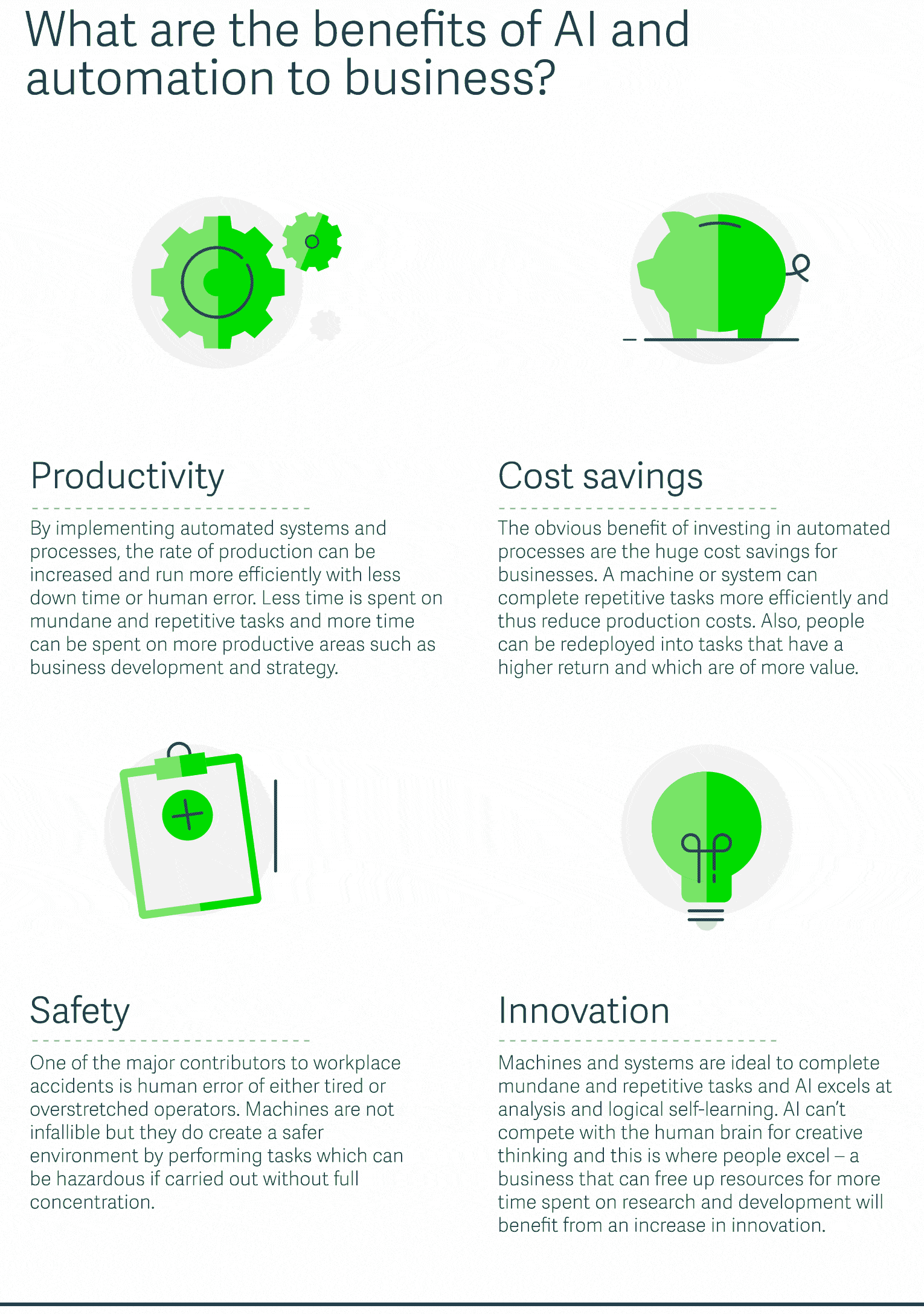With this blog post, we aim to update readers on the developments of Artificial Intelligence, automation and future of work.
‘Artificial Intelligence’ (AI) is a blanket term that is applied to technology that mimics human intelligence. While this tech has been developing since the 1950s, advances in machine learning in recent years have meant that AI has become an increasingly large part of our everyday lives. Therefore, it would not be an exaggeration to say that AI is already bringing forth a new industrial era, where automation is revolutionising nearly all fields of work with increased productivity and sharper insights into behaviours.
Machine learning refers to computer software that is able to learn from both experience and data. Paired with the rise of cloud computing, which is increasing the processing capacities of software, machine learning is bringing business to the cusp of mass adoption of AI. As AI can process data much faster than the human mind, this streamlining of previously time-consuming, mundane tasks is freeing up time to focus on what we’re much better suited for: creativity, strategy and interacting with other people.
The field of Artificial Intelligence has, since its conception in the 1950s, been subject to a great deal of fear-mongering, largely in the form of films and literature. Many fear that AI will take over the world, or at least make many fields of work obsolete, causing unemployment. As with previous industrial revolutions, the process of becoming acclimated to new technology takes time, and while some jobs become extinct due to the increased proficiency of machinery, it also creates opportunities for more specialised, creative and meaningful jobs. This means that as a society, we can better serve each other while also cutting costs.
How AI is Already Shaping our Everyday Lives
Whether we realise it or not, Artificial Intelligence is already impacting our lives in a meaningful way. On an individual level, AI is regularly visible, for example in the personal assistants built into our phones that learn our behaviours in order to offer us the most relevant ways to facilitate our needs. We can also see the impact of AI in personalised newsfeeds, increased banking security and self-driving cars.
In the business world, AI has already transformed many processes and fields of work. Bookkeeping, for example, is becoming an increasingly automated process, with intelligent software automating tasks like payroll, data entry and reporting. More and more online content is being written by bots, since while they may not be capable of the creativity of human copywriters, they are perfectly suited for more monotonous forms of writing, such as product descriptions and financial reports.
AI Trends for the Future
Going forward, we can expect to see AI further automate the more repetitive processes in our everyday lives. For example, AI is changing the healthcare industry with algorithms that can scan radiology images for tumours and detect many cancers better than trained radiologists. Furthermore, in the future, virtual health assistants will be increasingly used to schedule doctor’s appointments, answer health questions and remind people to take their medication. Meanwhile, in finance, AI will continue to better assist with fraud prevention by detecting unusual patterns and change the trading industry with automated trading systems.
Opportunities for AI Implementation for Businesses
Businesses of all sizes can implement AI solutions to free up time spent on mundane tasks in order to focus on more meaningful projects. An example of an AI implementation available to all businesses is chatbots. As people are starting to spend more time on messaging apps rather than social media platforms, instant messaging will become an increasingly important means of communicating with companies. Chatbots can be used to answer questions instantly, with Facebook Messenger offering easy setup for a simple bot to reply to common queries. Marketing emails are also easily automated with systems such as Mailchimp, while smart accounting software can save you money that would previously go towards the services of an accountant.
To learn about AI and automation and the benefits for business and industry, please visit our website.
This blog was written and contributed by:
Scott McLay
Marketing Executive
Sage



